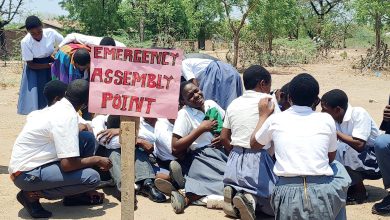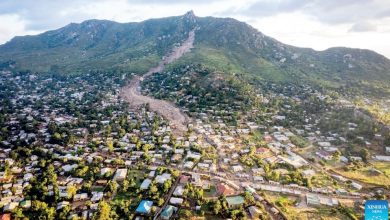‘I wish they lived to hear this’
Monday and Thursday mornings are busy but painful for Vitani Kamanga, 37, of Area 44 in Lilongwe.
After daybreak, the father of three puts on a bold face and boards a minibus from Area 44 to Kamuzu Central Hospital (KCH) in the capital city.

On arrival, health workers prepare him for a five-hour procedure, inserting transparent pipes in his veins to drain toxic waste from his blood.
They call it dialysis, which keeps him going while awaiting a miraculous kidney transplant.
“It’s a routine,” Kamanga says. “I need dialysis twice a week.”
The bricklayer from Chitipa, the country’s northernmost district, has relocated to be closer to dialysis that offer stemporary relief from chronic kidney disease.
He wishes he was in his hometown, building foundations, walls and homes.
But Kamanga moved to Lilongwe in 2020, after two years of relentless fatigue and swelling.
Doctors at KCH discovered that his kidneys were failing and he needed dialysis twice a week for a lifetime.
His relocation personifies the agony of Malawians across the Northern Region where no hospital offers dialysis.
Last week, Minister of Information Moses Kunkuyu announced that government is installing dialysis machines at Mzuzu Central Hospital (MCH) which refers patients to Lilongwe for the lifesaving procedure.
Kamanga was in the middle of a blood-recycling session when he heard the good news, which will relieve pressure on KCH’s 12 dialysis machines.
“We needed this as early as yesterday,” says Kamanga. “My wife and children followed me to Lilongwe and life has never been easy. Thank God, they are loving and resilient.”
The family knows why the breadwinner frequents the hospital and they are happy that he returns alive.
“Dialysis has become a part of me,” Kamanga says. “I feel lucky because my family is understanding, loving and resilient. Some people with a similar condition die in the North because they cannot afford long travels to get dialysis at KCH.”
Last month, something shifted: At last, government confirmed procuring dialysis machines for Mzuzu and the news stirred outpouring comments on dialysis clients’ WhatsApp chat group.
Kamanga recalls: “I was filled with joy and hope because the Northern Region’s largest hospital has never had dialysis machine since its opening in 2000.
“For the first time in a long time, it felt like our lives matter. When you travel beyond your region to get lifesaving services, you feel invisible. At last, it felt like we were finally being seen.”
At home, Kamanga and his wife are negotiating a possible relocation to Mzuzu so that their children can grow up near their grandparents.
“I haven’t been home since I started dialysis. Finally, I’m asking myself: Isn’t it time to return to the North.”
MCH spokesperson Anold Kayira confirms that the installation of six dialysis machines and staff training is underway.
“To many patients, this means access, dignity, and, above all, saving lives, time and money,” he says.
Secretary for Health Dr Samson Mndolo says the dialysis unit taking shape in Mzuzu immediately shifts the Ministry of Health’s focus to Zomba Central Hospital, which has no dialysis machine.
“We are yet to agree on a roadmap with Zomba,” he says.
Still, Kamanga’s voice fades when asked about what improved access to dialysis would mean to him.
Amid smiles and sniffs, he says: “I remember colleagues who didn’t make it,” he says. “I wish they had lived to see this.
“Dialysis may be a temporary measure, but the machines destined for MCH will bring a lifesaving service closer the people in the Northern Region.”





